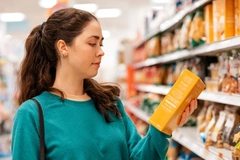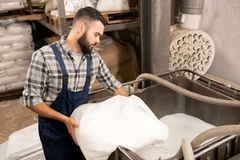Closed Loop Partners reveals key lessons learned from US reusable cup pilots
19 Jan 2021 --- A new report charting how reusable beverage cups performed in pilot systems has been released by investment firm Closed Loop Partners.
The pilots mapped how reusable cups can effectively replace single-use packaging in the public foodservice sector.
In 2019 and 2020, four reusable cup pilots systems were launched throughout the San Francisco Bay Area, US. The city is known for its residents’ organic “cultural willingness to test out new products.”
The experiments tested technical feasibility, business viability, user desirability and systemic circularity to see how reusable cups compare to single-use packaging for hot and cold beverages.
Engaging diverse stakeholders, making sustainable material choices, selecting appropriate locations, choosing the right payment model and optimizing health and safety protocols were some of the key topics addressed in the report.
Cooperation hailed as way forward
The main discovery was that collaboration across the entire landscape determines pilot systems’ success.
“Creating a successful reusable packaging system requires collaboration among diverse stakeholders – customers, businesses, staff, logistics providers and the cities they live in,” the report reads.
 Over 480 reusable cup systems were submitted to NextGen Consortium; here depicted is one such model.“The pathways to collaboration look different for each stakeholder, and each stakeholder has a different role to play in the larger implementation of a reuse system.”
Over 480 reusable cup systems were submitted to NextGen Consortium; here depicted is one such model.“The pathways to collaboration look different for each stakeholder, and each stakeholder has a different role to play in the larger implementation of a reuse system.”
The report found four main conditions crucial for public reuse models to succeed. They must:
- Be a net positive for the environment.
- Be safe and hygienic at every step of the process.
- Provide a seamless, convenient experience for companies and customers.
- Have a clear pathway to scale, with success tied to collaboration.
Target more than just the wealthy
“Just a few years ago, the idea of scaling reuse habits among the public would have felt like an unlikely reality,” says Bridget Croke, managing director of Closed Loop Partners.
“But today, large consumer goods companies and retailers realize that contemporary reuse models can and must be part of solutions for addressing plastic waste and consumption.”
As these new models are brought to scale, she warns they need to target beyond the high income, sustainability-oriented consumer. “Cost-competitiveness must be top of mind for us to have the largest reach and, ultimately, the biggest impact.”
Therefore, the pilot systems occurred across different environments: closed (technology company campuses), semi-open (university campus and train stations) and open (cities and local neighborhoods).
CupClub, Muuse and Recup (from left to right) were the three reusable cups used in the pilot tests.What’s the problem with paper cups?
Paper-based alternatives to single-use plastic are widely considered as more environmentally friendly.
While paper cups may use less plastic overall, they are not typically made of only wood fiber materials. A plastic liner inside the cups separates paper from beverage to prevent leakage.
That plastic liner makes the cup more difficult to recycle as the fiber and plastic components aren’t easily separated in the recycling process.
Ultimately, this means a high percentage of cups end up in landfills each year, contributing to inefficient resource and material usage, greenhouse gas emissions and wasted energy.
Beyond the paper cup
Reusable packaging and cups are just the beginning, affirms Kate Daly, managing director of the Center for the Circular Economy at Closed Loop Partners.
Refill, resale and rental models that keep materials in circulation are “poised to reinvent all kinds of product formats and industries,” she continues, such as shopping bags and food packaging.
“Reuse is certainly not going to solve the whole plastic waste challenge, but as more of these models come to market, we are excited to see new solutions that collectively build reuse back into our cultural and behavioral norms.”
Closed Loop Partners has long been advocating for better reuse systems across the packaging sector. In previous reporting, the investment firm argued that compostable packaging alternatives need bolstering by reuse models that keep products in play for longer.
In its plastic reduction strides, Closed Loop released an interactive map of plastic waste in the US and Canada last fall, revealing the diversity and volume of the problem by country and state.
The investment firm also initiated a collaborative consortium with US retail giants to fund ideas for reinventing the plastic bag.
By Anni Schleicher











